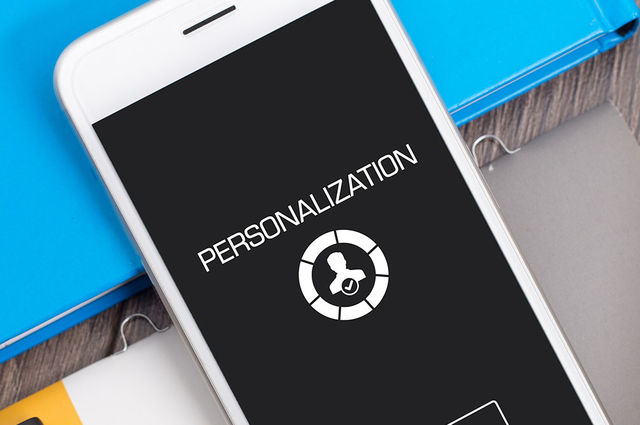Is Personalization in Hospitality Dead or Alive?
12 experts shared their view
Personalization of the customer experience - from digital marketing and website experience, revenue management and pricing, CRM and loyalty marketing, and on-property guest experience - has become a buzzword at industry conferences, webinars and in the hospitality media. Lately, two schools of thought have emerged in hospitality. Some industry experts, discouraged by privacy acts such as GDPR and CCPA and the complexity of the technology and efforts needed, predict that personalization is dead or dying. Others, encouraged by the advances in next-gen technologies like AI and ML and the increased sophistication of the online travel consumers, firmly believe that personalization is here to stay and the only way to successfully engage, acquire and retain the digitally savvy customers.
So... is personalization dead or alive in hotel digital marketing, website experience, revenue management, CRM and on-property guest experience?
It's 2020 and here we are discussing personalization. Something that's been with us in hotels for a long time.
The question is, have we ever got it right? Have we been doing it wrong for so long that it doesn't matter anymore? As part of Digital with Simone Puorto on FunnelTV, we recently discussed “Is Personalisation Dead in Hospitality”. A section of the discussion can be viewed via this link.
A recent report by Gartner predicts that, due to a lack of return on investment, 80% of marketers will stop investing in personalization by 2025. At first sight, therefore, personalization seems to be just a fad. Even worse: a hoax.
But what are the reasons behind these unsatisfactory results? Simple: collection, integration, and protection of data, at least according to the marketers interviewed. The report also states that, by '24, "artificial intelligence identification of emotions will influence more than half of the online advertisements." Oxymoronic? Not really: this double standard just means that the companies that will be able to access, integrate, and analyze their (and third-parties) data frictionlessly, will likely win the hyper-personalization game, while the ones dealing with data silos and fragmentation (legacy PMSs, anyone?) will never get a penny out of personalization.Thinking of, and maybe even wishing for, the death of personalization in digital marketing is, allow me the philosophical analogy, Nietzschean' slave morality all over again. Renouncing personalization just because of its complexity is the virtue of those who have been defeated and that, having been defeated, make weaknesses appear to be virtues instead.
The good ol' Friedrich may have died some 120 years ago, yet his message still resonates.
Yes, even in marketing.
Not only is personalization alive and well in hospitality, but it is also about to take off exponentially, including some ways most of us can't even conceive of today. Advancements like personalized chatbots and attribute-based bookings are already here or on the way. Using a cell phone to open a guest room is going to seem like child's play when RFID starts being used to personalize the guest room art, adjust the temperature and automatically link the TV with the guest's Netflix account. Imagine if a hotel pointed artificial intelligence at every incoming guest's social media accounts, and after finding a predetermined number of food pictures, initiated an automated, personalized chat with the “chef”, requesting input on the dinner specials during the guest's upcoming stay.
But as what we CAN do with technology continues expanding, what we SHOULD do with it is going to draw more and more attention. As a result, the standard must be the benefit to the guest, not the business. Some of the early personalization failed to pass this test. Hotels that employ geo-targeting to offer different rates to different countries are now easily defeated by anyone who knows how to use a VPN. Using cookies to create a false sense of urgency by serving higher rates to returning shoppers is easily defeated by opening an incognito tab, and the mistrust and negative perception that it leaves behind will cause long-term damage.
It's not a question of legislation, but rather hotels that put the guest first and personalize ethically, including giving each customer the ability to determine their own desired level of personalization, will be rewarded and those who act selfishly will suffer the consequences of doing so.
Personalization in hospitality is not only here to stay, but it will become ubiquitous and indivisible part of the guest acquisition, guest services and guest retention. AI and ML powered technologies have already accelerated the adoption of personalization techniques across many industries and are making serious strides in hospitality: guest acquisition, revenue management, CRM, guest services, loyalty marketing, etc.
Naturally, any attempts for personalization without real-time access to solid underlying customer data won't work. Just imagine how you can personalize pricing, room selection, room amenities and auxiliary services, based on real-time data on your guests' RFM Value! From initial search on the property site to actual booking, pre-arrival, on-property and post-stay communications and ongoing drip marketing campaigns, you can personalize your marketing throughout the customer journey. At NextGuest we utilize Smart Personalization Engine which ties together the property website CMS and CRM technologies to deliver over 150 personalization criteria and options to provide a real-time individualized user experience. We have seen conversion rates and upsells increase on average by 25%-40%.
In the same time, personalization should not be complicated and any hotel can start by targeting micro-segments. It could be as simple as targeting automatically on your property website different feeder markets with different pricing and specials. Ex. European hotel targeting Australians with longer stay specials in AUD vs Swiss users with weekend promotions in CHF. Or first time visitors vs. return guests with high “best guest” RFM value. Or a business hotel offering different pricing to users searching for a single room Mon-Thurs and less than 2 night stay vs users searching for a room for 2 pax for the same period with >2 night stay. The opportunities are endless.
Notwithstanding media hype, no hotel company has ever truly committed to personalization. Despite the vast amounts of data that we collect and the potential this represents, we as a sector have largely failed to put appropriate systems in place to do anything above mass customization (if even that) of either marketing or customer experience.
With consumers overwhelmed by increasingly irrelevant brand messages, the company that succeeds in differentiating itself by paying attention to individuals' needs and interests will undoubtedly stand out from the crowd and win customers' affection.
Irrespective of sector, personalization is the future. It cannot be ignored!
I remember hearing this mantra for the digital age and how personalized marketing would become the ultimate tool to *drum roll* ... get the right message, to the right person, at the right time, on the right platform. Does that ring a bell? Well, it should because this was being said... almost twenty years ago!
Then I remember attending CRM conferences back in 2007, 2008 and 2009 and this was all the rage. Whatever happened since? Oh sure, there is some personalization happening with some hospitality brands able to recognize a client at check-in, and even sometimes before. This, in turn, can lead to memorable experiences when arriving at your room and they already know you like Pinot Noir (and prepared a bottle for you) or down-duvet pillows (which are already on the bed).
So machine learning and artificial intelligence are about to revolutionize this once again, just like sophisticated CRM tools, social media, and other cloud-based solutions were supposed to do in the past decade, if not more? Allow me to be on team skeptic, here.
Not that it isn't a noble or worthy objective. It truly is. The problem lies unfortunately in the near-impossibility to get a single view of the client across multiple touchpoints, online and offline. And I don't see this becoming less of an issue, all the contrary in fact.
It is indisputable that consumers, in general, want a more relevant and frictionless experience. Why did close to 600 new Greek Yogurt products get launched between 2014 and 2016 in the US alone? Because consumers want choice. And with a growing abundance of choice, it is easy to get overwhelmed, be it when shopping for Greek Yogurt, streaming a movie or TV show, ordering food delivery – or staying in a hotel.
The only way for the right product to be matched with the right customer is through some form of personalization (or “relevance matching”). Research has shown over and over that the majority of consumers want tailor-made offers, and “responsible” personalization. But the right balance between privacy and data protection will become more and more critical. This is true for Netflix, Amazon, UberEats/Deliveroo and it is true for hotels.
I believe that we are only starting to scratch the surface of what is yet to come and proactive, automated personalization and recommendation “engines” will become ubiquitous in the not-so-distant future.
Personalization will continue to be of critical importance only if the hotel industry uses customer data to add value to customers. Before the hotel industry develops capacities to re-orient itself to effectively becoming customer-centric, the profit-driven personalization will only kill itself.
Customers do not mind sharing personal data if the data can make their lives better and easier. Until recently, the hotel industry did not provide customers the right platforms to share relevant information. This year, we have seen Accor and other major hotel companies update their loyalty program platforms and started collecting more preference data. Finally, the industry has moved beyond collecting data such as the bed type, room location relative to the elevator and ice machine, or high/low floor. Now, hotel companies want to know customers' interest in art, culture, lifestyle, and sport. I applaud hotels which think outside of hotel operations, and now I challenge hotel companies' next move to clearly demonstrate to their customers how it has added customer value without crossing over privacy sensitives. As customers share their personal interest, how will the hotel industry choose to respond? How will the hotel industry provide personalized service and experience? For example, will hotels serve customers interested in reading differently from customers interested in photography?
Recently, in the third RevME conference that took place at Ecole Hoteliere de Lausanne, conference attendants passionately discussed the potential benefits created by AI and ML. If the output of ML is that “people look at this hotel also look at these hotels”, or if the application of AI is primarily to take reservations or answer FAQs, they will not create much-added value to customers or hoteliers. What would be more interesting is “given you have stayed in Hotel A in Bali, and Hotel B in Paris, we will recommend Hotel C for your next trip to Tokyo.” Or, “given you are allergic to dust, we will put an air purifier in your room when you arrive”. One of my students once told me that since her family member has a drinking problem, she always calls hotels in advance to notify the hotel about removing alcohol from the minibar. Could AI and ML save my students from repeating this painful information?
On the other hand, given the above available data, will hotels be able to use AI and ML to estimate the demand for special hobby groups and host events for them? Will AI and ML help hoteliers re-engineering their renovation projects and develop different rooms for Chinese travelers, young families, physically challenged or for the fishing mania? Whichever companies figure out the secret formula while again maintaining the customer comfort zone over privacy issues, they will be the winner against Airbnb.
Alternatively, the hotel industry could explore the potential of personalization, AI and ML to increase the employee retention rate or relieve the labor shortage challenge. Certainly robots and self-serving technology are part of the labor shortage solutions. Employees are internal customers. Could the hotel industry offer personalized career development programs for every employee? Could AI and ML help the hotel industry to select the right candidate, detect employees' risking of burnout and offer relevant suggestions?
Personalization has become more critical to today's businesses, although I also advocate that companies should be regulated when using consumers' biometric or personal data. Such privacy acts as GDPR and CCPA will indeed add complexity to the technology and efforts needed for personalization. Still, the technology that enables customization promotes efficiency and customer loyalty. Companies will find ways to provide a customized experience to their loyal customers (if not to everyone) and, at the same time, comply with the regulations that protect privacy. Most of all, it is consumers' best interest to received personalized service while knowing their private information is protected and secured.
Personalisation isn't dead, but its evolution is far from its final form. There are pockets of personalisation occurring today during the customer experience, such as; pre-arrival upselling offers; geo-location and guest segmented pricing strategies, to name a couple of popular trends. Recently a CRM company acquired a revenue management solution (Cendryn > Rainmaker) which is a strong signal (but no guarantee) that the combined technical solution will offer far greater degrees of personalisation.
We have come to understand, that the guest is willing to provide a degree of personal information if they believe it will improve the overall customer experience. This can be process-related, information or experiences specific to their taste or simply making their life easier.
Best practice necessitates that as an industry we request permission, demonstrate responsibility with the information, keep the information secure, deliver a superior experience with the data, and commit to full removal of information on request - ensuring follow-through.
As an industry, we've traditionally held a volume of information concerning guest behavior when staying in hotels. The challenge has been to surface and consolidate the information across the business in a relevant manner, specific to an individual customer. The technology is almost here.
The emerging opportunity for the industry is to show value to the guest - an improved experience and an establishment of trust based on good governance. The incentive exists for the industry to make personalization a success. Critical to the model will be information security worthy of the confidence of the guest.
I believe we will continue to work in an environment where large volumes of information will be on hand to improve product and service.
For me, it's alive.
Delivering a great guest experience will always require interactions to be personalized. That could be simple 'old school' service like a hotel concierge greeting a frequent guest by name as they arrive, or it could be your preferred room set to the right temperature - without having to request these things. Small personalizations to cater to the individual have a huge impact on guest experience and loyalty. Technology has made it easier to capture guest preferences and use them in day to day hotel operations and service.
Many hotel websites are still glorified brochures - great to look at, but the same for everyone. With the right website tools and an understanding of your target audiences (you have more than 1 audience, believe me!) you can quickly improve website conversion by creating more meaningful content that delivers what the guest is looking for.
The notion of stricter privacy regulations interfering with a marketer's ability to personalize is in my opinion a common misconception. GDPR is intended to prevent lazy mass-marketing and bad data governance (spam emails, selling of personal data, etc.). Personalization can deliver the opposite when done correctly: highly targeted experiences that people actually want. Personalization is absolutely here to stay and it should be a key component of your digital marketing in 2020.












